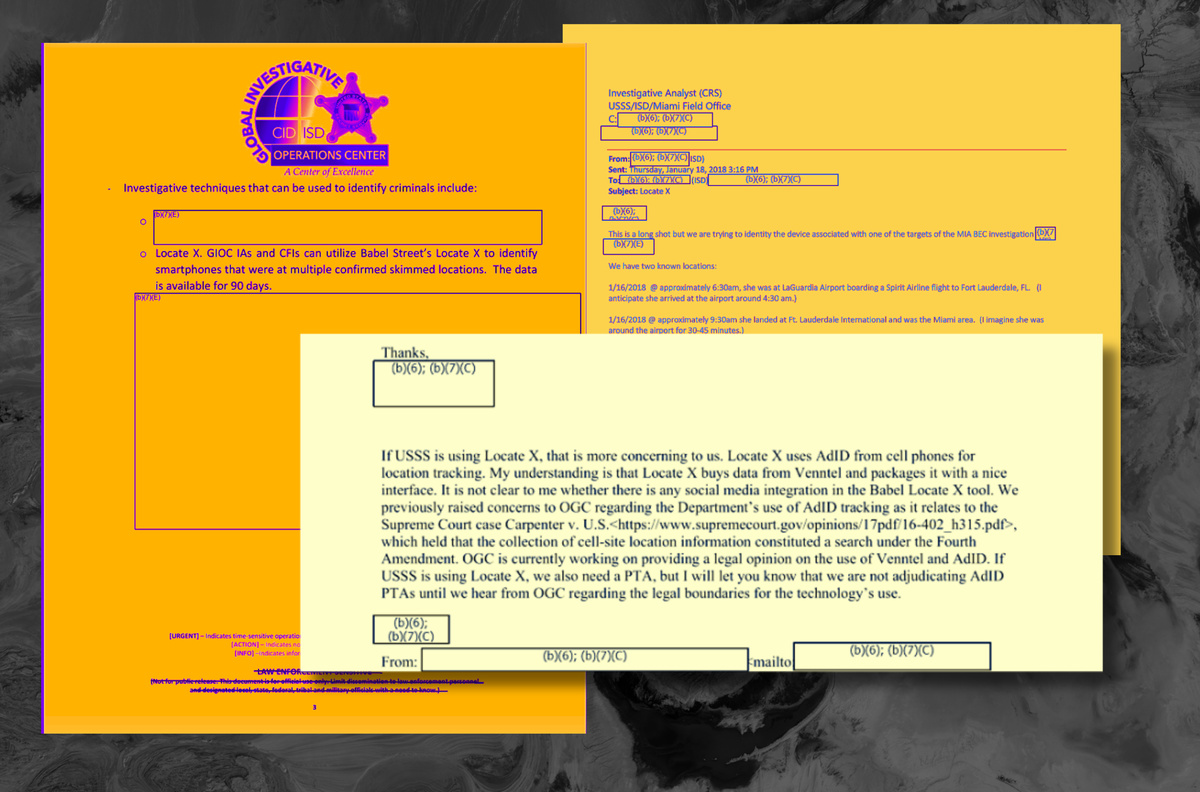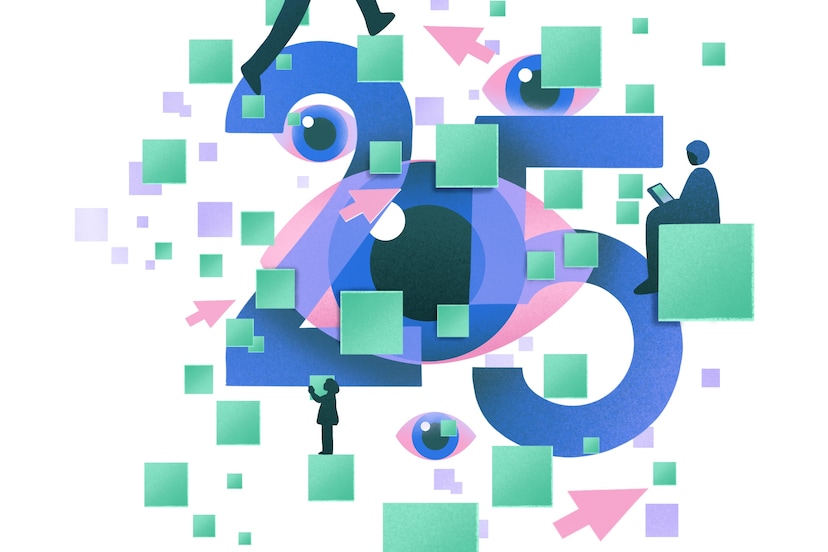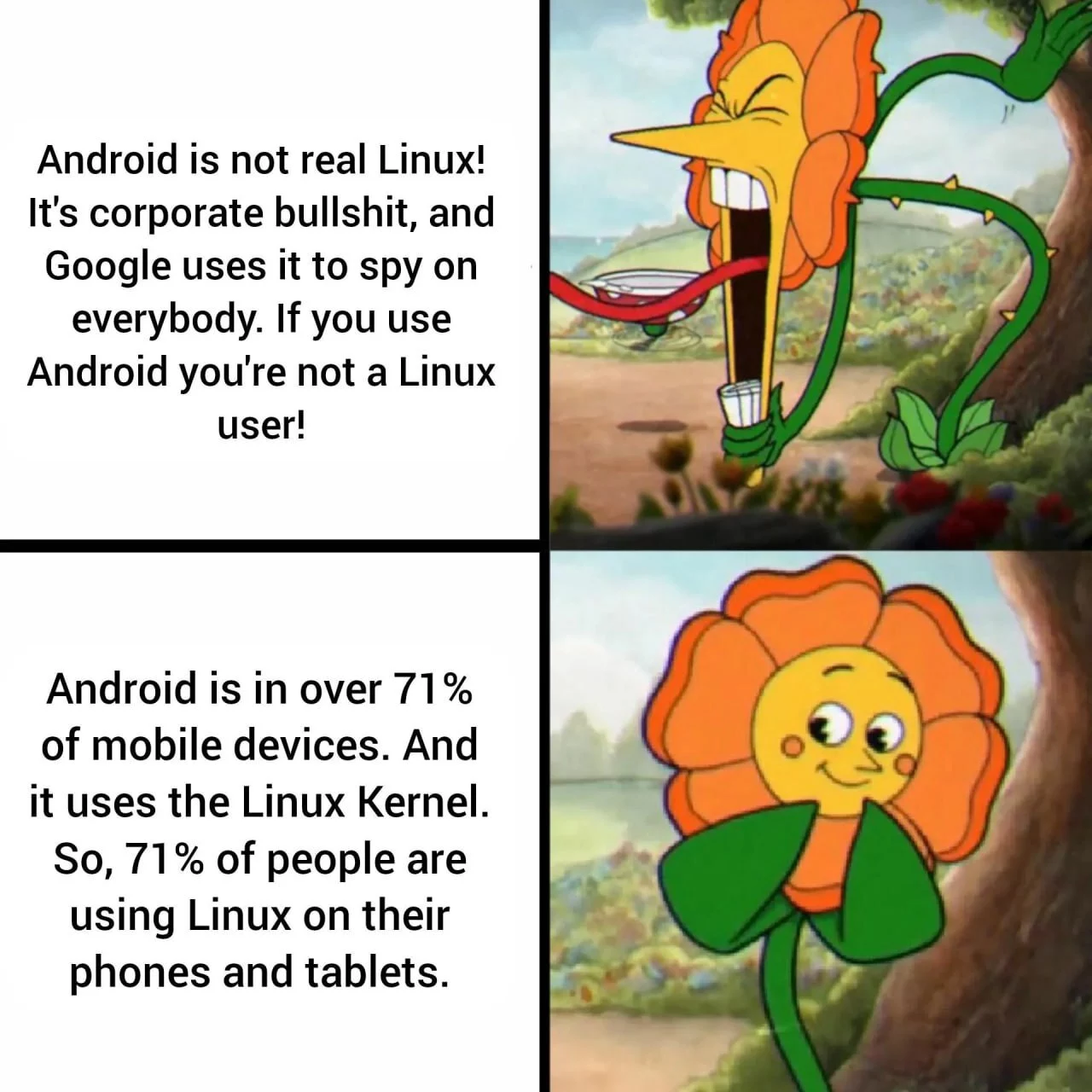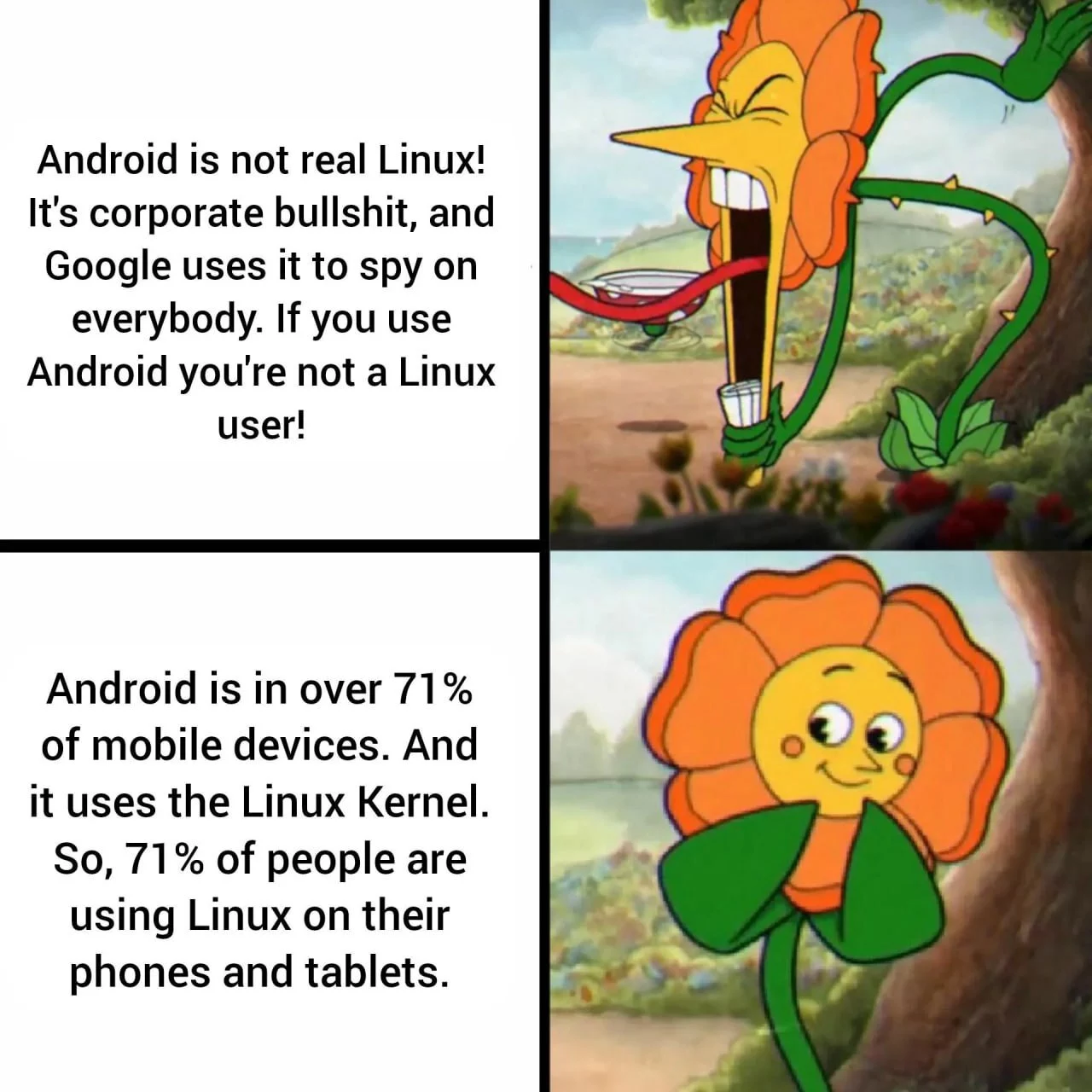1 Shares
#tracking
Researchers find #security flaws in #Skoda cars that may let hackers remotely track them
The vulnerabilities, discovered in the vehicle’s MIB3 infotainment unit, could allow attackers to achieve unrestricted code execution and run malicious code every time the unit starts. This could let an attacker obtain live vehicle #GPS coordinates and speed data, record conversations via the in-car #microphone, take screenshots of the infotainment display, and play arbitrary sounds in the car, according to PCAutomotive.
#news #car #surveillance #tracking #software #cybersecurity #fail
One person like that
Location data firm helps US police find out when suspects visited their doctor
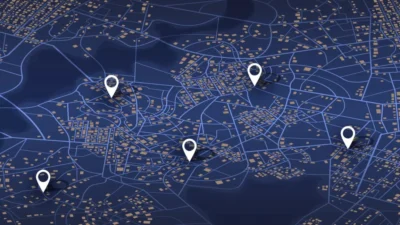
A location-tracking company that sells its services to police departments is apparently using addresses and coordinates of doctors’ and lawyers’ offices and other types of locations to help cops compile lists of places visited by suspects, according to a 404 Media report published today.
Fog Data Science, which says it “harness[es] the power of data to safeguard national security and provide law enforcement with actionable intelligence,” has a “Project Intake Form” that asks police for locations where potential suspects and their mobile devices might be found.
Who needs a surveillance state when the data can just be purchased by the government?
This all comes down to the power of aggregating lots of metadata. If one takes just a single app like WhatsApp where the T&C’s allow for a full range of metadata to be collected by the app and passed upstream to Meta, who leaks data to 3rd parties, it is very easy to see how all this is possible. WhatsApp (just as an example as it is not known whether WhatsApp is the source of this data) knows who you talk to, when you talk to them, where you are exactly, where you live, how often you use your phone, what roads you travel on, where you visit, and lost more. It may not be able to read your E2EE messages, but it knows everything else, and its users have given consent for the data to be passed to 3rd parties.
I really have no idea how such information can be allowed to be traded and sold to interested parties. Many countries only allow such data to be collected and provided to law enforcement after a court order is obtained by law enforcement. As TikTok is still Chinese owned, I’m doubting if this data is being provided by TikTok to US data brokers. It is more likely US owned social networks providing this data themselves (purely my guess, though).
I can see why more and more users are distrusting these companies which provide free services, and then sell their data. The thing is, if law enforcement and governments are buying the data to get around their own legal restrictions, I just don’t see this situation really changing.
As users, we need to shun the use of such services (which is why I deleted my WhatsApp account when the T&C’s changed). It is also worth trying to rather use social networks that fall under the legislation of more privacy-friendly countries. Which also makes me a bit suspicious of why the US wants to maybe force the sale of TikTok to a US company… If that happens, I’ll be deleting my TikTok account too.
It seems more and more to me that social networks are the ideal way to find out who goes where and who they are communicating with… There is certainly lots of economic value in this, otherwise data brokers would not be doing such a roaring trade. They should just be aware though that they are very likely breaking the privacy laws of many non-US countries (not just the EU) if those citizens data is being sold in the USA. It’s time these other countries woke up and took note of what is going on.
See arstechnica.com/tech-policy/20…
#Blog, #privacy, #technology, #tracking
One person like that
2 Shares
One person like that
3 Shares
Invidious : Youtube m'a tuer
Youtube veut bien que vous regardiez ses vidéos à condition que vous puissiez être identifié·e, via un compte ou par diverses techniques moins avouables. Google a donc décidé de bloquer toutes les adresses IP de Gitoyen, et par conséquent de FDN.
Certaines instances invidious sont encore opérationnelles, elles sont référencées ICI et LÀ.
#internet #logiciels-libres #vie-privée #GAFAM #monopole #tracking
5 Likes
17 Comments
4 Shares
3 Likes
Bits of Freedom strijdt al 25 jaar voor privacy: ‘Je laat altijd een spoor van data achter’
Trouw (€)
(...) Het beschermen van het recht op privacy is noodzakelijker dan ooit, nu we in een digitale wereld leven waarin vrijwel al onze communicatie in handen is van slechts een handjevol Amerikaanse techbedrijven, zegt Evelyn Austin, directeur van Bits of Freedom. Een kantelpunt in de nog relatief korte geschiedenis van het internet was volgens haar de opkomst van sociale media in combinatie met de smartphone. (...)
(Tekst loopt door onder de foto.)
Veel van de technologie die we gebruiken om wereldwijd te communiceren is in handen van slechts enkele grote techbedrijven zoals Meta, dat Facebook en WhatsApp maakt, en Alphabet, de eigenaar van onder meer Google en YouTube. Bedrijven met een Amerikaans idee over vrijheid, zegt Austin. “Zeer individualistisch; een kleine overheid die zich vooral niet met de dingen moet bemoeien. Inmiddels weten we dat je soms juist overheidsingrijpen nodig hebt om de vrijheid van de groep te beschermen. En dan kom je uit op heel andere maatregelen, zoals wetten, regels, controle en handhaving.” (...)
BoF heeft net zoveel zorgen over schending van de privacy door het bedrijfsleven als door de overheid. Bovendien werken die vaak samen om burgers te controleren, omdat het overgrote deel van onze communicatie via de grote techbedrijven loopt. (...)
Eigenlijk bepalen de grote techbedrijven al tien jaar voor een grote groep in de samenleving met welk nieuws ze ‘s morgens opstaan en hoe hun kijk op de wereld is. En dat levert bakken met data op die in handen zijn van slechts een handjevol partijen. (...)
Lang werd er door de overheid ingezet op zelfregulering. Grote techbedrijven moesten zelf regels bedenken om hun apps veilig te maken en verantwoord datagebruik te waarborgen. Volgens BoF is het al heel lang een slecht idee om dat aan de commerciële markt over te laten. (...)
De manieren waarop we de vrije markt reguleren werken niet in de digitale wereld omdat er slechts een beperkt aantal spelers op de markt is en consumenten vrijwel geen macht hebben. (...) Dat komt deels omdat die diensten gratis zijn, maar ook omdat er simpelweg geen alternatieven zijn. (...)
Er worden door bedrijven en overheden op basis van data die over ons zijn verzameld steeds vaker voorspellingen gedaan over hoe we ons gaan gedragen, en of we misschien in een risicogroep zitten. (...)
Die fouten in de systemen worden een soort code, en als je niet aan de norm voldoet, kun je in de problemen raken. “AI herhaalt het verleden, historische ongelijkheid wordt als het ware gecodificeerd. En dat gaat de kansenongelijkheid vergroten.” (...)
Kies bijvoorbeeld voor privacyvriendelijkere, open source alternatieven. Gebruik een zoekmachine als DuckDuckGo in plaats van Google, zodat Google minder data over je verzamelt. Of gebruik Jitsi om te videobellen in plaats van bijvoorbeeld Zoom of Skype. (...)
> Zie ook: Landsgrenzen zijn in de digitale wereld achterhaald: ‘Silicon Valley zit in je broekzak’ (NRC) (€)
Tags: #nederlands #bof #internet #privacy #data #data_mining #surveillance #surveillancekapitalisme #alphabet #google #youtube #meta #facebook #whatsapp #instagram #vrijheid #democratie #sociale_media #social_media #zelfregulering #dsa #dma #avg #netneutraliteit #duckduckgo #jitsi #zoom #skype #tracking
11 Likes
4 Shares
https://youtube.com/watch?v=Es_uQAQkNXo&si=iTYD1li_zJKZig11
Your Android #Phone #Tracking You and #Listening. #TURN THIS #OFF
One person like that
Ein Forschungsteam hat herausgefunden, dass sich Kinder in Klassenzimmern eher wie kondensierender Dampf verhalten, während sie sich auf Spielplätzen bewegen wie freie Gasmoleküle.#Fluiddynamik #Kleinkinder #Vorschule #Bewegung #Schwarm #Gasgesetze #Thermodynamik #RFID #Radarwellen #Transponder #Tracking #Drohnen #Schwärme #Physik
Phasenübergang bei spielenden Kleinkindern entdeckt
One person like that
Who owns your shiny new #Pixel 9 #phone? You can’t say no to #Google’s #surveillance
Source: https://cybernews.com/security/google-pixel-9-phone-beams-data-and-awaits-commands/
Every 15 minutes, #GooglePixel 9 Pro XL sends a data packet to Google. The device shares #location, email address, phone number, #network status, and other #telemetry. Even more concerning, the phone periodically attempts to download and run new code, potentially opening up #security risks...
Don't be a data cow 🐮 on Google's server farm 👎
#tracking #fail #bigbrother #orwell #economy #online #Problem #news #Smartphone #android #bigdata #datacow
6 Likes
1 Comments
2 Shares
Don't be a Data Cow 🐄🐮😨👎
#microsoft #apple #macos #iphone #google #android #surveillance #tracking #software #fail #meme #linux #freedom #nerd #humor #Criticism #problem #os #bigbrother #privacy
9 Likes
4 Comments
2 Shares
2 Likes
6 Comments
1 Shares
Investigations in the so-called #darknet: Law enforcement agencies undermine #Tor #anonymisation
These are the first documented cases of these so-called ‘timing analyses’ in the Tor network worldwide. Until now, this was considered practically impossible.
#news #police #Germany #cybercrime #vulnerability #Software #tracking #internet #anonymity #privacy
2 Likes
5 Comments
1 Shares
10 Likes
6 Comments
2 Likes
Firefox (since v 128) on Android:
hit new tab, enter following address:
chrome://geckoview/content/config.xhtml
there should be a search-field on top. search for:
aboutConfig
enable it
new tab, enter:
about:config
and search for:
dom.private-attribution.submission.enabled
disable it
3 Likes
1 Shares
#Searxng, the continuation of the #Searx project, which was discontinued in September 2023, spreads #Internet #search queries across multiple search engines to improve #privacy.
demo: https://searx.bndkt.io
git: https://github.com/searxng/searxng
#software #tracking #surveillance #opensource #foss #floss #online #www #web
8 Likes
4 Comments
3 Shares
11 Likes
7 Comments
1 Shares
#Microsoft’s new AI-enabled laptops will have a ‘photographic #memory’ of your virtual activity
source: https://fortune.com/2024/05/20/microsofts-ai-laptops-photographic-memory-nadella/
The new features will include Windows Recall, giving the #AI assistant what Microsoft describes as “photographic memory” of a person’s virtual activity. Microsoft promises to protect users’ #privacy by giving them the option to filter out what they don’t want tracked, and keeping the tracking on the device.
Of course, the company, which has never been known for its extensive security efforts, guarantees security and privacy. It sounds more like a horror story to me if Microsoft now collects even more data.
#future #technology #bigdata #orwell #surveillance #fail #software #windows #economy #trust #news #tracking
6 Likes
5 Comments
1 Shares


